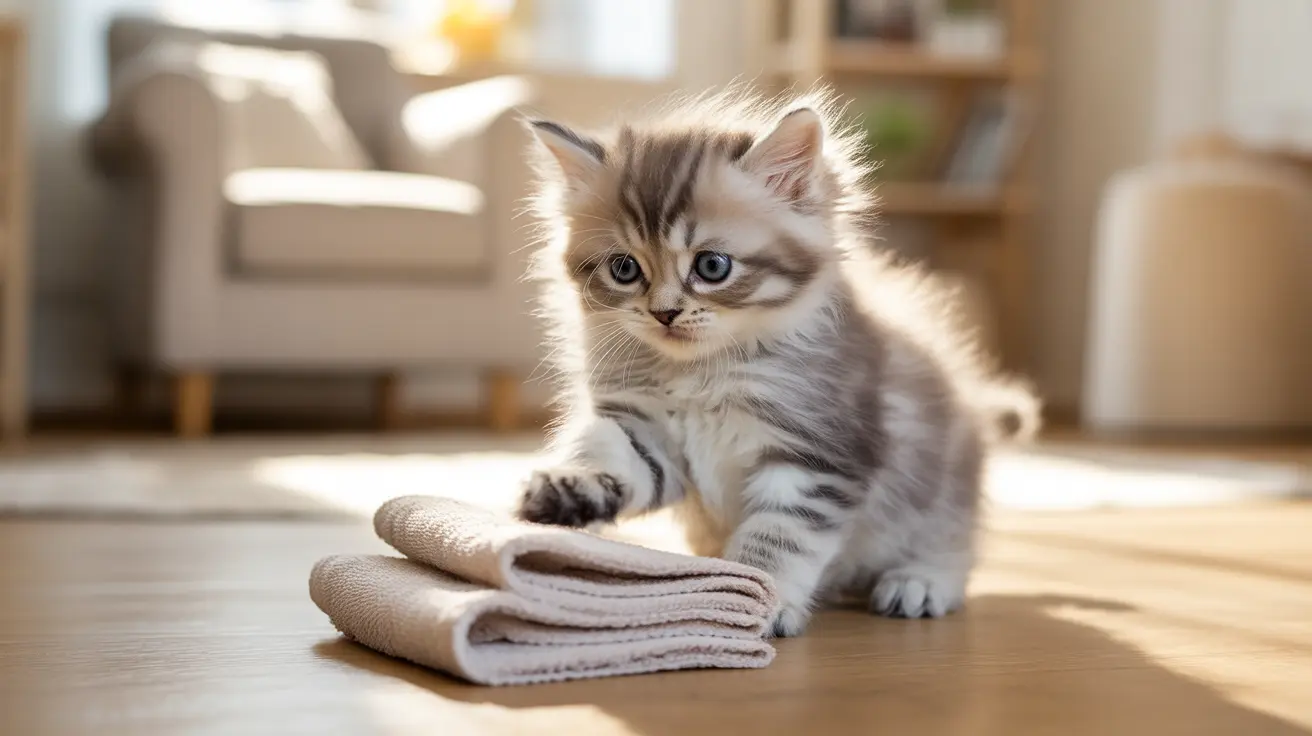The Early Weeks: Why Kittens Need Help Pooping
Newborn kittens lack the neural development and muscle control necessary for independent elimination. During the first three weeks of life, they rely entirely on their mother or human caregiver to stimulate bowel movements after each feeding.
This stimulation process mimics the natural behavior of mother cats, who lick their kittens' genital areas to trigger the elimination reflex. For orphaned kittens, caregivers must use a warm, damp cotton ball or soft cloth to provide this essential stimulation.
Development Timeline and Milestones
Understanding the typical progression of a kitten's pooping abilities helps caregivers provide appropriate support at each stage:
0-3 Weeks: Complete Dependence
During this period, kittens need stimulation after every feeding, typically resulting in 3-4 bowel movements daily. The process should continue until the kitten shows signs of independent elimination.
3-4 Weeks: Transition Period
This is when most kittens begin developing the ability to eliminate independently. You'll notice them starting to squat and strain on their own, though they may still need occasional assistance.
4-5 Weeks: Growing Independence
Kittens typically master independent pooping during this time and can begin litter box training. Their developing nervous system now allows for better control over elimination.
What Normal Kitten Poop Looks Like
Healthy kitten stool changes appearance as they develop:
- First 24-48 hours: Dark, sticky meconium
- Milk-fed period: Yellowish, soft, and formed
- Weaning period: Brown, well-formed stools
- Post-weaning: Similar to adult cat stool
Signs of Potential Problems
Watch for these warning signs that may indicate health issues:
- Diarrhea or very loose stools
- Constipation or straining
- Blood in the stool
- Unusual colors (white, black, or green)
- Excessive crying during elimination
Frequently Asked Questions
When do kittens start pooping on their own without help?
Most kittens begin pooping independently between 3-4 weeks of age, as their nervous system and muscles develop sufficient control for voluntary elimination.
How do I stimulate a newborn kitten to poop if the mother isn't around?
Use a warm, damp cotton ball or soft cloth to gently wipe the kitten's genital area in a circular motion after each feeding, mimicking a mother cat's tongue.
What is the normal frequency for kitten pooping at different ages?
Newborns typically poop 3-4 times daily after feeding. By weaning age (4-6 weeks), this reduces to 1-3 times per day, similar to adult cats.
What does healthy kitten poop look like, and when should I be concerned?
Healthy kitten poop should be well-formed, brown, and slightly moist. Contact a veterinarian if you notice diarrhea, constipation, blood in stool, or unusual colors.
When should I start litter box training my kitten for pooping?
Begin litter box training around 4 weeks of age, when kittens start pooping independently. Use a shallow box with non-clumping litter that's easy for small kittens to access.
Conclusion
Understanding when and how kittens start pooping independently is crucial for their health and development. While most kittens begin eliminating on their own between 3-4 weeks of age, each kitten develops at their own pace. Always monitor their elimination habits and consult a veterinarian if you notice any concerning changes or problems.






